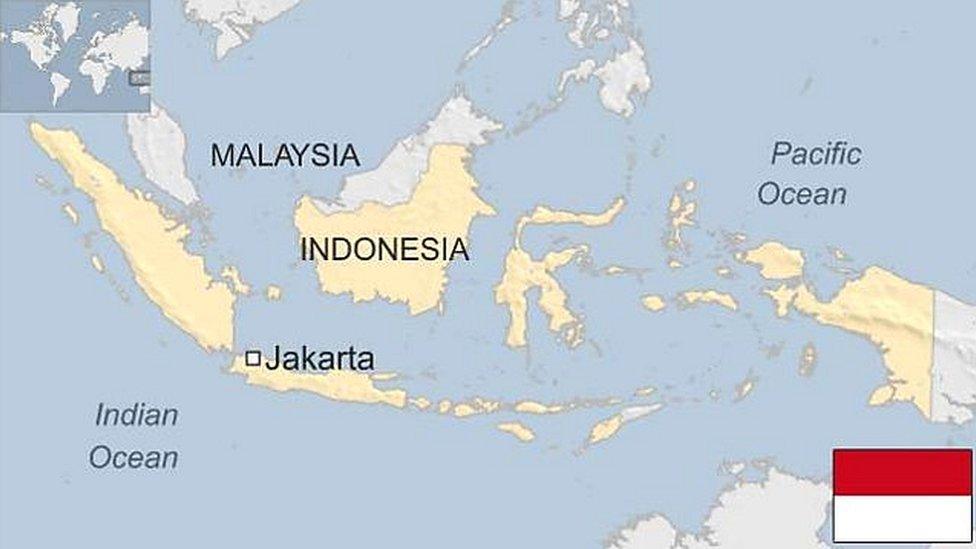The sudden intensity of Indonesia's anti-gay onslaught
- Published
Indonesia LGBT stories: "I am a target. I am beaten"
A few short weeks in Indonesia has seen a former communications minister make a call for the public to kill any gay people they find and the leading psychiatric body describe transgenderism as a mental disorder. BBC Indonesian's Rebecca Henschke and Ging Ginanjar went to find out about the insecurity of life on the receiving end of such threats and hostility.
The swiftness and intensity of the attacks against Indonesia's lesbian, gay, bisexual and transgender (LGBT) community has taken its members by surprise.
A hair salon run by transgender people in Jakarta is one place to get a sense of what it has been like. For Anggun, 23, who works there, it was enough of a struggle to accept who she really was. She is trying to stay safe by not attracting attention to herself.
"We don't know why smart people are suddenly saying things like 'homosexuality is a virus that can spread'. Even uneducated people know that's not true," she says.
Not every trans person in Indonesia has the chance to lead a legitimate life and career. As it is, many are forced into sex work and already face violence.
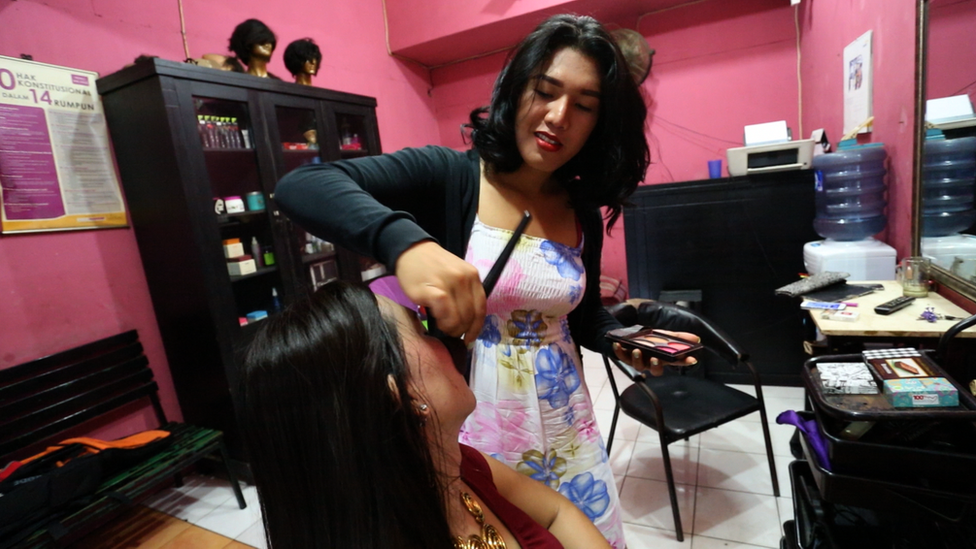
Vina and Anggun are two members of Indonesia's LGBT community who run a salon in Jakarta
Homosexuality and gay sex are not illegal in Indonesia, and the world's largest Muslim country has a vibrant transgender culture and tradition, which broadly meets with tolerance from the Indonesian public.
But something has happened in recent weeks and it is difficult to identify why it has snowballed.
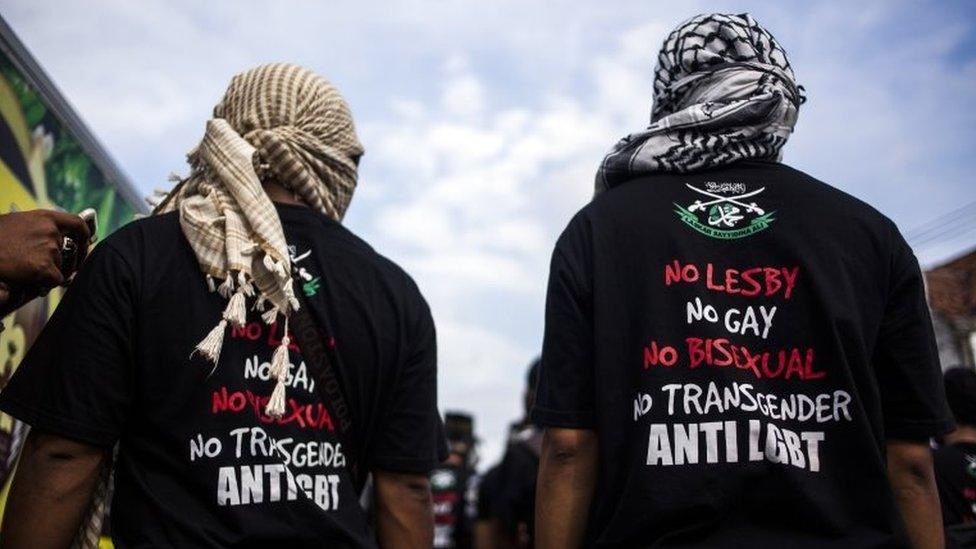
On the main street of Indonesian university town Yogyakarta last week 100 men could be found standing carrying signs that read "LGBT is a disease". Just a few hundred metres away a group of rights activists battled it out with the police: "Stop attacks on democracy and threats against minorities!"
It came after the minister of research, technology and higher education, Muhammad Nasir, heard some LGBT support groups were offering counselling services at one of Indonesia's leading universities and declared they were corrupting the country's youth. The conservative media and the country's active social media users joined in the attacks.
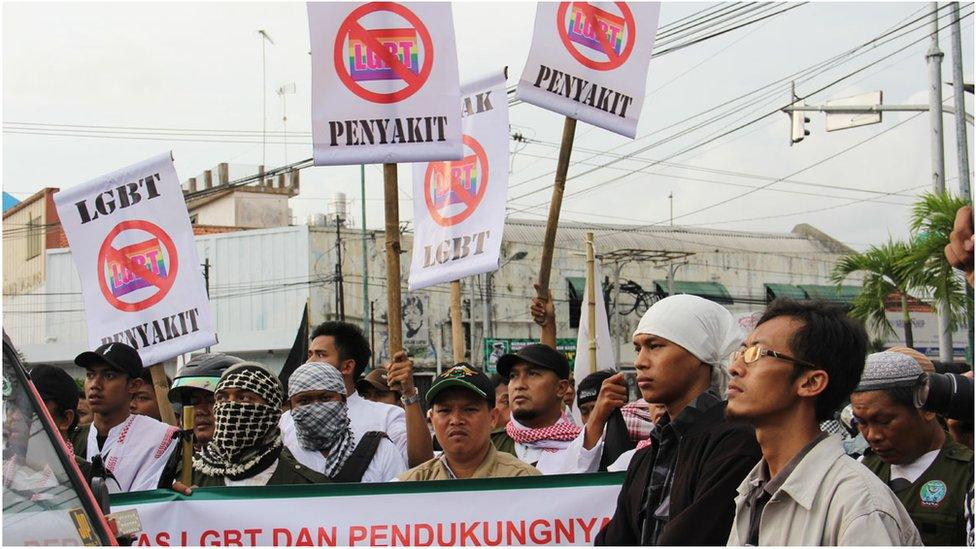
Anti-LGBT activists held a protest in February in Yogyakarta
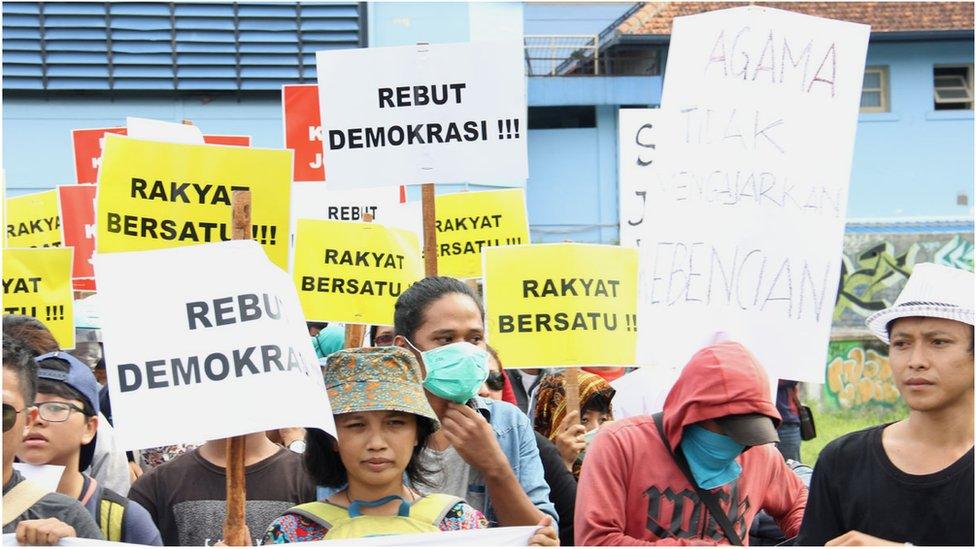
LGBT activists say the community should be protected under Indonesia's constitution
There followed a wave of critical statements from senior members of Indonesia's government.
One of the most extreme views came from Defence Minister, Ryamizard Ryacudu who described the movement for gay rights in Indonesia as a form of a modern warfare - an attempt by Western nations to undermine the country's sovereignty. Then former communications minister Tifatul Sembiring made a call on Twitter, where he has more than one million followers, for the public to kill any gay people that they find.
Even Indonesia's Vice-President Jusuf Kalla, called for funding to be cut to a United Nations programme that focuses on ending stigma, discrimination and violence towards LGBT people.
"What is most worrying is that they want to fight for equal marriage rights," he said.
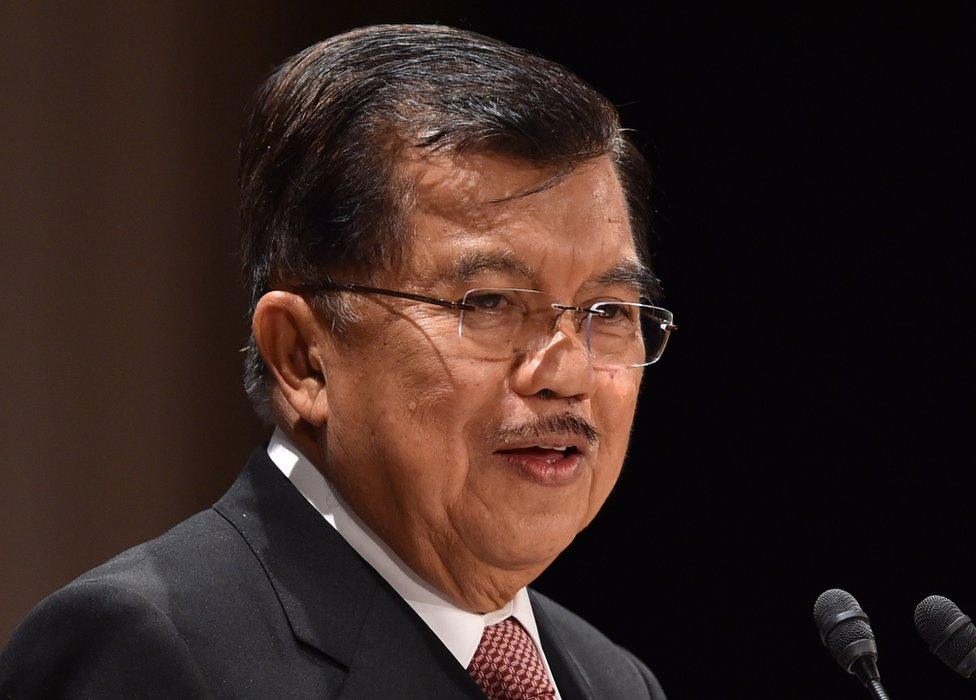
Mr Kalla is known to be an outspoken figure in Indonesian politics
Rights activists insist their requests are modest and they are not demanding matrimonial rights.
But then Indonesia's top psychiatric association issued their statement: "We need to promote, prevent, cure and rehabilitate LGBT people". It did little to assuage fears.
Gay rights activist, Hartoyo, who runs the support group Our Voice, says the community is on high alert.
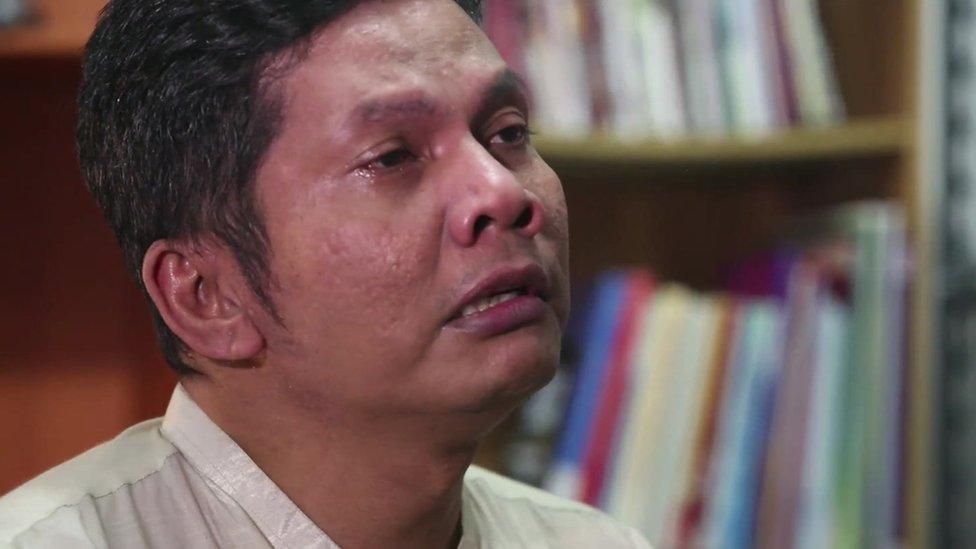
Hartoyo says he is scared of violence against the LGBT community
"I am scared that there will be violence against us. There is a history of violence against minorities in Indonesia that were fuelled by similar kinds of statements. We need the government to protect us and the president needs to say you can't talk to us like this."
The anti-LGBT campaign also succeeded in shutting down the world's first and only Islamic school for transgender women, opened in 2008 as a safe place for transgender people to learn about their Islamic faith and pray together.
Many gay people are able to live comfortably and without prejudice particularly in the capital Jakarta, as long as they don't draw attention to their sexuality.
And across Indonesia the picture is complex. The Bugis tribe in Sulawesi, for example, recognises five genders, including bissu- someone who is neither a man nor a woman.
Leading human rights lawyer, Todung Mulya Lubis, argues that the community is protected under the country's secular constitution but is concerned that elements of conservative Islam are becoming increasingly vocal in Indonesia's pluralistic society.
"What upsets me," adds Lubis, "is that the president hasn't stepped into the debate".

LGBT activists say the community should be protected under Indonesia's constitution
The LGBT community in Indonesia openly campaigned for Joko Widodo hoping that his presidency would bring in a new era of greater tolerance.
While the president hasn't made any direct statements, his close aide, Luhut Panjitan, coordinating minister for political, legal and security affairs, has.
Speaking in parliament recently, he said: "[LGBT] might not be 'normal' in terms of the general rules and religion but you can't just dismiss them like that," he said.
"We have to remember that all of us also could have a relative or an offspring that is LGBT. They are part of our communities and citizens of our country and they too have to be protected."
Many observers remain sceptical that such statements will be able to stem the rising tide of officially-endorsed intolerance.
- Published25 October 2024
